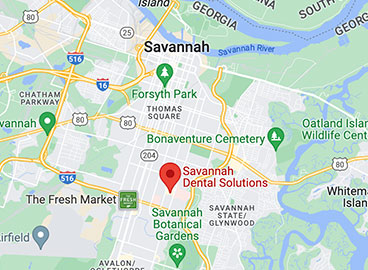On both sides of your jaw are two joints known as temporomandibular joints, which for various reasons, can become injured, causing pain and discomfort.
While it can be difficult to determine the exact cause of someone’s TMJ disorder, the symptoms tend to be the same regardless of the cause.
Keep reading to learn about the common symptoms of TMJ Disorders and factors that could increase your risk of developing one.
Common Symptoms
Before listing the common symptoms, if your jaw clicks or grates occasionally when chewing or opening your mouth, unless there is a movement limitation or pain, you likely do not need TMJ disorder treatment.
Symptoms:
- Facial Pain
- Aching pain around or in your ears
- Pain in one or both of the temporomandibular joints
- Difficulty opening or closing your mouth due to the joint locking up
- Jaw tenderness or pain
- Pain when chewing or having difficulty with chewing
- Headaches
- Problems with your bite
- Tinnitus
- Teeth clenching or grinding
- Back, shoulder, and neck pain
If you have constant pain in your jaw or tenderness, you should schedule an appointment with your dentist or doctor.
You should also contact your doctor or dentist if you have difficulty opening or closing your mouth fully.
Causes of TMJ Disorders
During normal function, your temporomandibular joints are covered in cartilage and act as a hinge joint with a shock-absorbing disk to help smooth movements.
While numerous different issues can cause TMJ disorders, some of the most common include:
- A blow to the joint damages it
- Arthritis damages the cartilage over time
- The shock disk moves from its proper position or becomes eroded
Factors That Increase Your Risk
TMJ disorders can affect anyone, but certain life, genetic, and hormonal factors can increase your risk of developing one.
- Jaw injuries either recently or in the past
- Various forms of arthritis
- Chronic teeth clenching and grinding, known as Bruxism
- Diseases that cause problems to the connective tissues of the temporomandibular joint
- Stress
- Having a misaligned bite
Treatment Options for TMJ Disorders
Multiple treatment options exist for treating TMJ disorders, depending on the severity of the disorder and whether or not it may clear up on its own.
If the symptoms will not alleviate on their own, treatments range from medications or mouth guards to physical therapy and bite splints.
For TMJ disorders that are much more severe, the problem may require surgery to fix, though that is always a last resort.
Luckily, most TMJ disorders can be corrected via nonsurgical methods and following your dentist’s or doctor’s instructions for caring for your jaw until it heals.
Relieve TMJ Symptoms
TMJ disorders can cause pain and discomfort, making simple tasks like eating and opening/closing your mouth a struggle.
While you may try to tough it out, TMJ disorders often need professional intervention to help you regain your pain-free life.
Here at Savannah Dental Solutions, our expert team is knowledgeable in treating TMJ disorders, so if you want to begin your journey to a pain-free life, schedule an appointment today or call (912) 354-1366.






